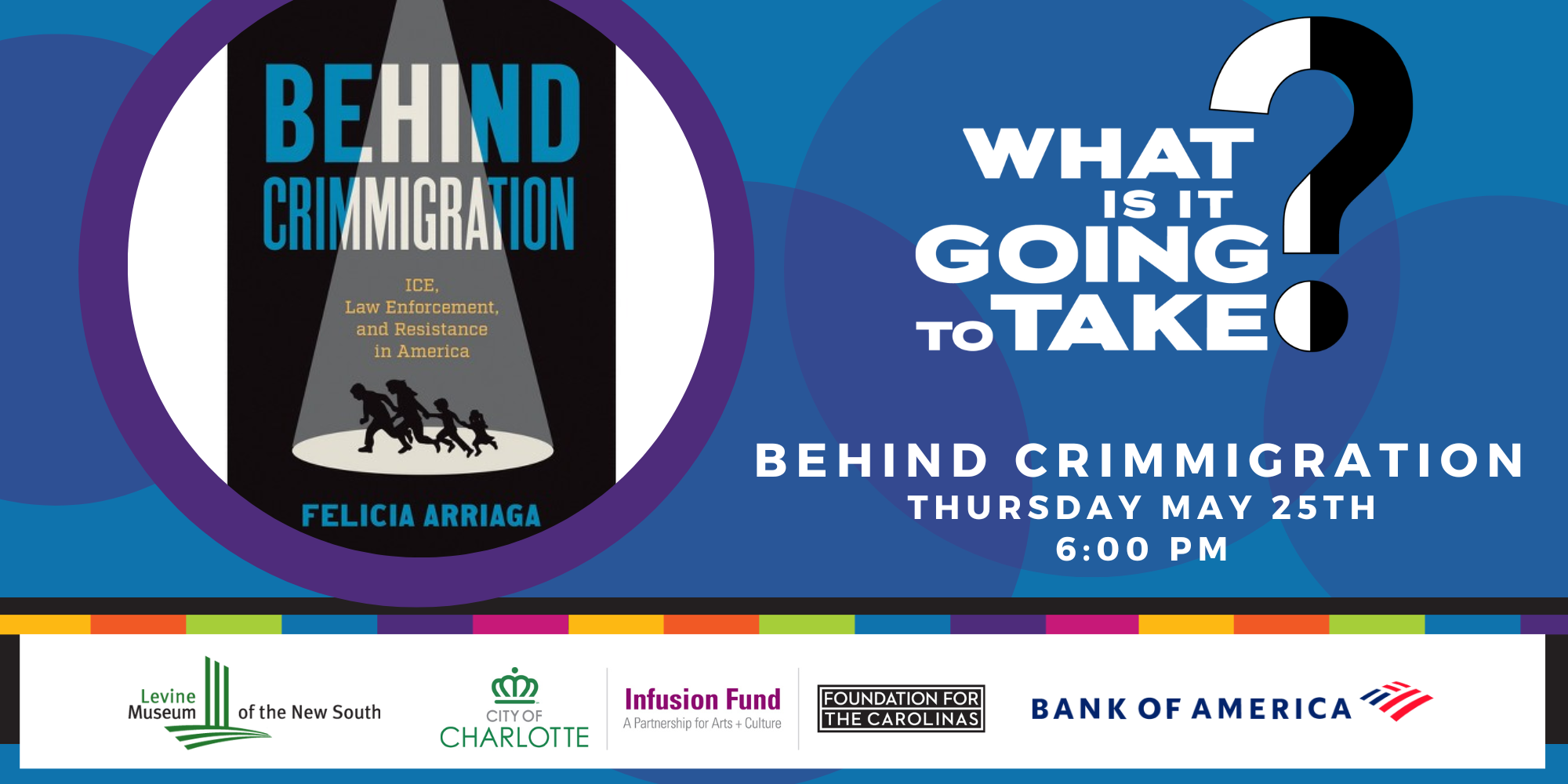
What Is It Going To Take? Behind Crimmigration
In recent years, dozens of counties in North Carolina have partnered with federal law enforcement in the criminalization of immigration—what many have dubbed “crimmigration.” Most recently, back in discussion for the third time in four years is NC legislators’ attempt to codify into state law that sheriffs collaborate with ICE, a requirement otherwise voluntary under federal law.
Join us for a discussion with Dr. Felicia Arriaga as she discusses her new and timely book Behind Crimmigration: ICE, Law Enforcement, and Resistance in America, alongside Charlotte-based community leaders and organizers Blu Lewis (NC BLOC, Movement for Black Lives, Our Data Bodies) and Stefania Arteaga (Comunidad Colectiva, Carolina Migrant Network).
Date:
Thursday, May 25th
Time:
6:00 p.m.
Location:
Charlotte-Mecklenburg Library South Blvd Branch | 4429 South Blvd
About the Book
Southern border enforcement still monopolizes the national immigration debate, but immigration enforcement has become common within the United States as well. While Immigration and Customs Enforcement (ICE) operations are a major part of American immigration enforcement, Felicia Arriaga maintains that ICE relies on an already well-established system—the use of local law enforcement and local governments to identify, incarcerate, and deport undocumented immigrants.
Arriaga contends that the long-term partnership between local sheriffs and immigration law enforcement in places like North Carolina has created a form of racialized social control of the Latinx community. Arriaga uses data from five county sheriff’s offices and their governing bodies to trace the creation and subsequent normalization of ICE and local law enforcement partnerships. Arriaga argues that the methods used by these partnerships to control immigration are employed throughout the United States, but they have been particularly visible in North Carolina, where the Latinx population increased by 111 percent between 2000 and 2010. Arriaga’s evidence also reveals how Latinx communities are resisting and adapting to these systems.
A few copies will be available for purchase at the event, but you can also order it HERE.
About the Panelists

Blu resides in Charlotte, NC, and is the Organizing Director of NC BLOC, Minister of Organizing for the Movement for Black Lives, and Principal Researcher for Our Data Bodies research collective.

For the 2021-2022 academic year, Arriaga was a Visiting Research Scholar at the Princeton School of Public and International Affairs, teaching Race, Power, & Inequality and Race & Public Policy. Previously Arriaga was a tenure-track Assistant Professor of Sociology in the criminology concentration at Appalachian State University in Boone, NC (2018-2022).



